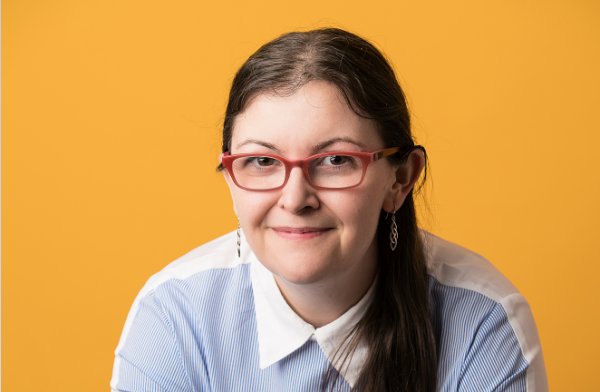Give a brief outline of your career to date
After serving as a youth worker, I moved into management in the third sector in 2009 and led change management initiatives until I was appointed as an interim executive with Mainstay DRP in 2017. I have just made CEO of Community Evaluation Northern Ireland. I believe the independence derived from the civic activism of the third sector is what places us in the best position to create societal wellness, and to this end have augmented my work with a strong volunteering commitment. I’ve served as a trustee for many wonderful charities such as The Rainbow Project, Victim Support NI and New Life Counselling. To ignore the skills, I’ve developed in these roles, and their contribution to my career, would be remiss of me.
What was your favourite subject at school?
English Literature; I was taught to understand the sub text of the words in front of me, and that has been an enlightening skill in my roles to date.
Did you go on to further/ higher education, if so what did you study and where?
I have always enjoyed learning and hope never to stop. After attaining first class honours in Byzantine History, I completed five master’s degree programmes in computer science, youth work, business management, adult education and history before engaging in PhD research in the experiences of LGBT students in N Irish secondary schools. I’ve studied at both QUB and UU, always because of the support of my family.
Is this what you always wanted to do?
Absolutely – as a socialist, I’ve always felt driven to give from each of us, according to our ability, to others, according to their need.
Were there any particular essential qualifications or experience needed?
A degree level education is usually required for CEOs, coupled with 5-10 years’ experience of leading projects. Many CEOs will have a commitment to continuous professional development, completing master’s degrees or professional qualifications; e.g. in HR, finance or law, in order to bring a specialist understanding to their role too.
Are there alternative routes into the job?
There’s no single pathway; but experience will be crucial in securing your role. I’d recommend volunteering, especially if socially driven leadership is your goal. Whether you’re making up condom packs to promote safer sex or helping fill in a claim form with the victim of a crime, it grounds you in the real work of the sector and allows you to speak with an authentic voice at interviews for CEO positions.
What are the main personal skills your job requires?
I’ve to think strategically, at all times. I have to bring passion, tempered with logic; analytical skills with big ideas; perception with patience, and confidence with humility. We none of us are as smart of all of us, and I’ve a pretty wonderful team. We can, and will, do anything we set our minds to, by working together.
What does a typical day entail?
Living an hour from work, it’s up at 6am to get to the office before 8am, listening to my podcasts en route. I’ll reply to emails, craft core messages for meetings; script conversations I want to lead on; and look at strategic goals for the day ahead. Meeting with staff, stakeholders and commissioners is blended with operational work, such as budget analysis, HR processes, authoring funding reports, trustee dashboards, collating data, reading contextual material and quality assuring work. I use the drive home to decompress and welcome the view of Kilclief beach at night – grateful that I have a home unlike 5.7% of our population.
What are the best and most challenging aspects of the job?
The role is lonely, so networking with peers is important. Prioritising thinking time is difficult; remaining relevant in a world where productivity and outputs are valued over outcomes is tough, but; I’ve been lucky to inherit a strong charity and building on the legacy of my predecessor is a privilege. Knowing I’m part of a longer story, a bigger tale, a larger narrative, is one of the most rewarding aspects of the job.
Why is what you do important?
We’re an independent champion for good impact practice, enabling the charity sector to improve its’ effectiveness, secure new resources, evolve its’ sustainability, and manage policy implementation. All of this contributes to the ultimate outcome of any intervention – a healthier, happier society.
What advice would you give anyone looking to follow a similar career path?
The same advice my nephew Jack gave to me; no one on their death bed ever said they wished they’d spent more hours in the office. Work hard, but play hard and, if you’re so inclined, pray hard too.
If you weren’t doing this what would you like to do?
Creating scrapbooks to sell on etsy.
What is the one piece of advice you would give to yourself on your first day?
Create certainty but leave room for uncertainty – that’s where the magic happens.
Describe your ideal day off.
Time with my adorable nieces and nephews (and the rest of the fambam), would be followed by good conversation, great food and 80s music with my friends. By my side through all of this would be my partner, Gabriel.
And finally, what’s the key to any successful job search?
If you can afford to take the time, have specific job search criteria. Scope out agencies with whom you’d most like to work, whose values align to yours. Identify key people who could help on this path and converse with them. Cast your nets wide and be open to unusual opportunities. Once you’ve identified a job you’d like, a well-crafted application and a focussed interview is crucial. Answer the questions asked, don’t tell the stories you know.


